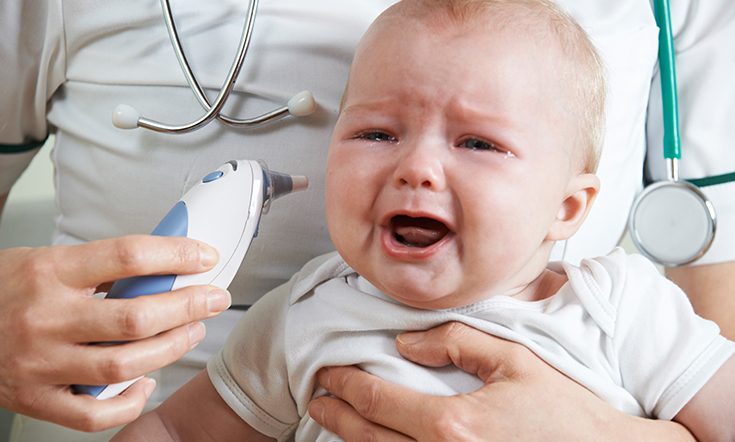

Human Parechovirus (HPeV), a serious virus seen more and more amongst young babies is on the rise in Australia. What makes this virus particularly concerning is the potential for complications from the virus. HPeV has been linked to conditions such as encephalitis and sepsis, and viral meningitis.
A study, published in the Medical Journal of Australia, shows that the condition is on the rise around Australia. Mild cases of the illness aren’t a concern and can have only mild symptoms or no symptoms at all. However, the more severe strains of the virus is on the rise.
Symptoms of HPeV
Symptoms show as gastroenteritis or an influenza-like illness, specifically fever, irritability and a red rash. The study, which was published this week, states that young infants can present as “hot, red and angry” babies. They may also have seizures or fits, indicating brain involvement, or may have circulatory failure, which requires admission to ICU. Severe complications occur in around 10 per cent of cases.
Symptoms in adults manifest as “upper respiratory tract infection and mild diarrhoeal illness, and less commonly with epidemic myalgia and myocarditis.”
Treatment of HPeV
Currently there is no cure for the virus and babies that are diagnosed require close medical observation, so symptoms and possible complications of the virus can be treated. Children under the three to six month age bracket are particularly vulnerable to HPeV. In 2017, 200 infants were admitted to hospital with HPeV and doctors fear that the virus is reaching epidemic proportions.
The study has tracked outbreaks of the virus and found that it comes in two-year cycles, with the first bad outbreak in 2013-14. Because little is known about the virus and its long term affects, babies that are hospitalised need to remain under the care of a specialist paediatrician until at least school age, if not longer, in order to monitor their development and any possible long term affects.
Authors of the study stated that “Hand hygiene, cough etiquette and staying away from child care and school while unwell should be emphasised”. There is no evidence to suggest that pregnant women are at an increased risk, and neither are the babies they are carrying.























